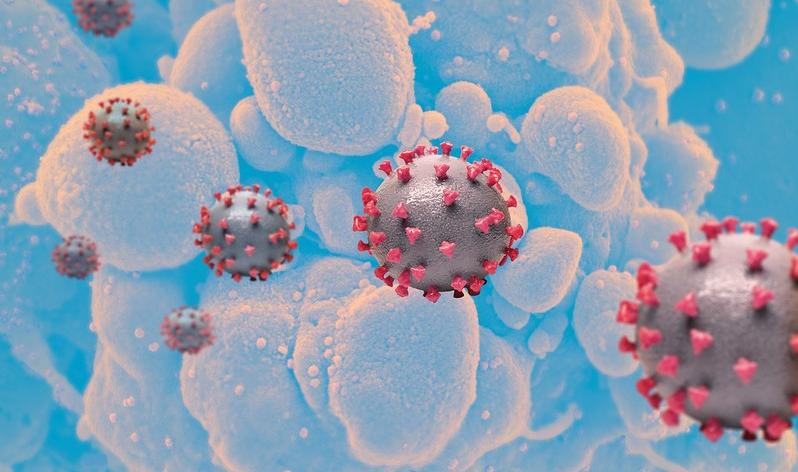Since China ended its stringent zero-COVID policies in early December 2022, no new SARS-CoV-2 variants have emerged among the ensuing surge of new cases in Beijing, suggests a study published today in The Lancet, but experts point out that it may have been conducted too early after the lockdown lifted to draw broad conclusions.
In the study, a team led by researchers from the Beijing Center for Disease Prevention and Control sequenced the genomes of randomly selected SARS-CoV-2 respiratory samples gathered from January and December 2022. The team sequenced 413 new samples, of which 350 were from local infected patients and 63 from people who entered the country.
Continued monitoring needed
All genomes belonged to the existing 123 Pango lineage, demonstrating no persistently dominant variants or new strains. "Nevertheless, [Omicron] BA.5.2 and BF.7 are currently dominant in Beijing, accounting for 90% of local cases since Nov 14," the authors wrote. "The effective population size for both BA.5.2 and BF.7 in Beijing increased after Nov 14, 2022."
While the results were from only Beijing, the researchers said they could be considered a snapshot of the whole country because of its frequent population influx and outflux and the presence of highly transmissible SARS-CoV-2 strains.
In a Lancet news release, co-senior author George Gao, DPhil, of the Chinese Academy of Sciences, said that it is important to identify the emergence of any new strains during the recent COVID-19 surge in China.
Omicron] BA.5.2 and BF.7 are currently dominant in Beijing, accounting for 90% of local cases since Nov 14.
"Our analysis suggests two known Omicron sub-variants—rather than any new variants—have chiefly been responsible for the current surge in Beijing, and likely China as a whole," he said. "However, with ongoing large-scale circulation of COVID-19 in China, it is important we continue to monitor the situation closely so that any new variants that might emerge are found as early as possible."
Study was likely premature
In a related commentary, Wolfgang Preiser, DrMed, PhD, and Tongai Maponga, PhD, both of the University of Stellenbosch in Cape Town, South Africa, said it is reassuring but not surprising that the study found no evidence of new SARS-CoV-2 variants, because the surge was well-explained by the abrupt lifting of control measures.
The study should be interpreted with caution, however, Preiser and Maponga said, because the study was probably premature. "It covers a short period within a few weeks of the lifting of the zero-COVID measures," they wrote. "If new lineages were to emerge in the course of the surge, the study was probably too early to find them."
Other limitations included the testing of only a small fraction of infected people and the inability to generalize the results to the rest of China. "In other regions of China, other evolutionary dynamics might unfold, possibly including animal species that could become infected by human beings and spill back a further evolved virus," Preiser and Maponga wrote.
They concluded by calling for an open and prompt exchange of scientific data from all regions of China, despite the current strained US-China relationship. "A prompt and unimpeded flow of vital data is key to countering the ongoing COVID-19 pandemic and many other health threats," they wrote.



















